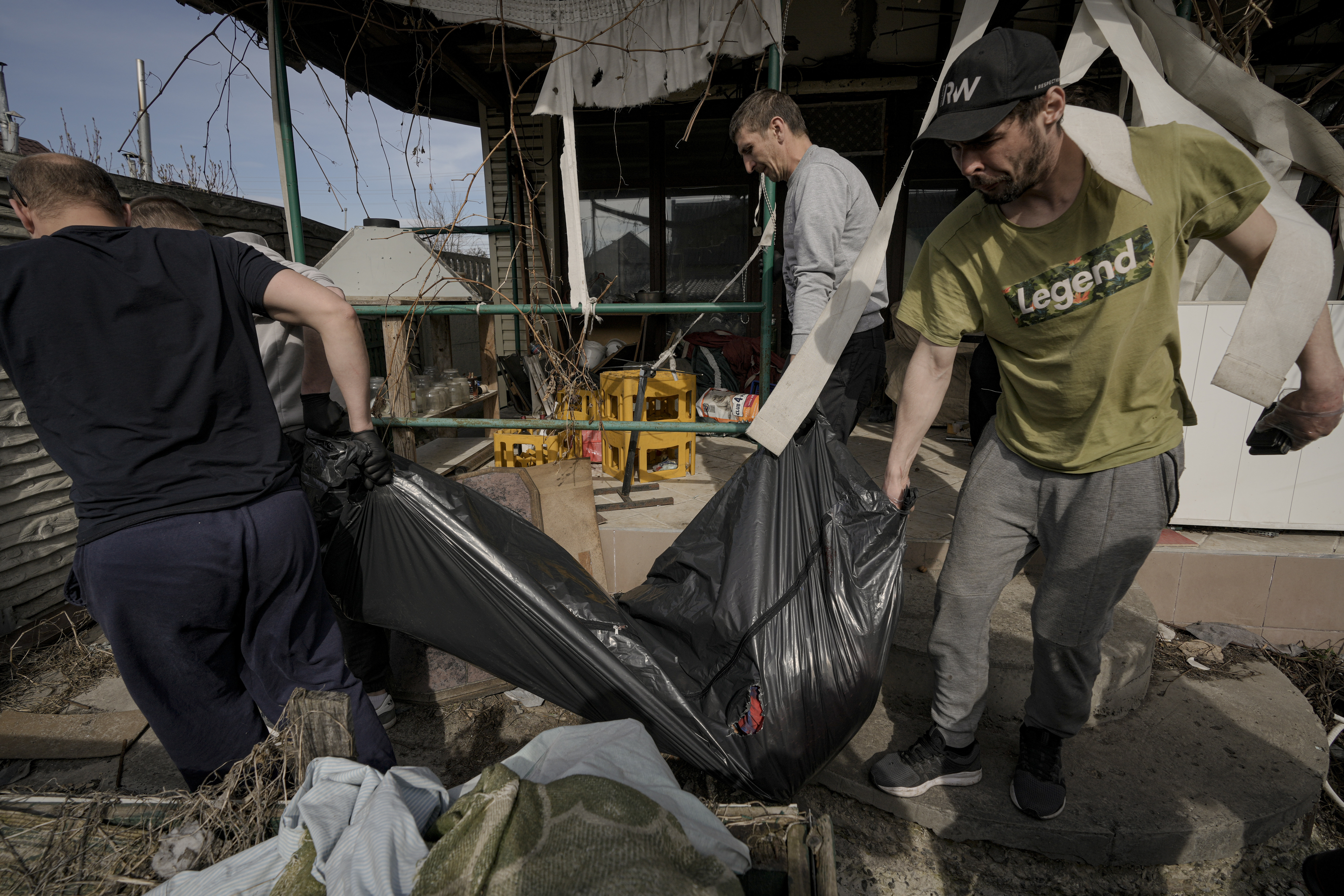
“One, two, three, four.”
My colleague Saad Abedine then gestured over to me and we peered into the windows of a van.
“Five? Six?”
“Best to err on the side of caution, I think. Let’s say five.”
I continued to walk along the street in this Ukrainian town and continued to count: Six. Seven. Eight. Nine. Ten.
On that day in the town of Bucha, I counted at least 10 dead bodies lying in the street.
One, possibly two, bodies in the van had been burned to a crisp. Bones jutted out of blackened skin and the bodies inside the van looked like they had melted into each other.
We walked in silence. My cameraman shooting the grisly scenes and I making notes of where and what state the bodies were in.
The Russians had shelled a convoy of people leaving the town some weeks earlier, in March. They left the bodies where they fell.
Some of the victims were on foot. There was a van and the body of a man lying next to his bike. The blast wave of the shelling left the bodies twisted and broken. The people inside the van incinerated. The bodies outside were preserved by near-freezing temperature.

A part of me wanted to be sick in the street but another part of me stopped myself out of respect for the dead.
Shooting that report was one of the toughest moments of my career and it will remain with me forever.
One of the ways of dealing with violent death, certainly for me, is to not look too closely at the dead.
That was impossible here in Bucha. The dead deserved to be recorded.
They deserved that their story be told.
What my team and I witnessed was a war crime. What else could you call the shelling of fleeing civilians?
Over the next couple of weeks, that pattern repeated itself. In Bucha, in Irpin, in Hostomel. Small commuter towns full of families living life with the dreams and hopes that we all have.
One day we saw a mass grave. Another day we came across a body in the woods. In a summer camp for children, a basement had been turned into a Russian execution chamber. Blood was splattered on the wall. The stench of death suffocated us even when the bodies were no longer there.
The Russians denied all of this.
They blamed Kyiv for staging the scenes of death. The International Criminal Court chief prosecutor Karim Khan said the whole of Ukraine was now a crime scene.
Investigations into those that died will take years, if ever, to be prosecuted internationally.
Probe needed
What we – other news organisations and ours – witnessed and aired in the weeks after the Russian withdrawal from the north of Kyiv on March 30 will be forensically picked apart by investigators, much as video footage from the war in Bosnia was, also.
That has to happen.
The investigation is crucial and what we broadcast will be just a very small part of it.
I take a little solace in that fact. I hope an international investigation does lead to prosecutions.
I hope. I am not sure there will be prosecutions.
As we left the scene that very first day in Bucha, silently in my head I counted once again: “One, two, three, four”.
I counted bodies. Relatives will count lives lost.
I’m not sure if I’ll ever meet any of the relatives of the dead. I’m not sure I want to.
What would I say?
That I counted the dead? That I walked amongst them and gave them numbers? That I couldn’t give them names?
I’m not sure I am capable of that conversation.
In the months since that day and subsequent days of bearing witness to death and war crimes, I find myself counting in my more reflective moments. “One, two, three, four, five? Let’s say five, six. Seven. Eight. Nine. Ten.”







